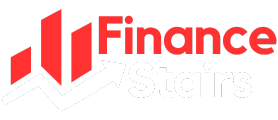Knowing the fundamentals of debt consolidation is crucial for effective money management. Credit card debt, school loans, medical bills—all of them may quickly overwhelm you with their various instalments and fluctuating interest rates. By consolidating all debts into a single payment with a set interest rate, debt consolidation provides a solution by streamlining the payment process and perhaps decreasing interest rates overall. In this post, we’ll examine the fundamentals of debt consolidation, weigh its benefits and drawbacks, and get ready for the procedure.
Key Takeaways
- In debt consolidation, numerous debts are consolidated into one payment with a set interest rate, making it simpler to manage and perhaps lowering monthly payments. Simplifying financial responsibilities and payback is the main goal.
- The article states that banks, credit unions, and internet lenders provide debt consolidation loans. It stresses the significance of carefully examining consolidation eligibility, interest rates, and conditions.
- Before consolidating debt, people should evaluate their finances. All debts, interest rates, and monthly payments are examined.
- The article discusses credit cards with balance transfers, debt management programs, and debt consolidation loans.
- The need for careful planning ahead for the debt consolidation process is emphasized in the conclusion.
The Basics of Debt Consolidation
Let’s first explore the definition of debt consolidation loans before delving further into it. Consolidating obligations into a single loan or credit line is the definition of debt consolidation, to put it simply. You simplify your financial commitments in this way, which makes them simpler to handle and may result in lower monthly payments overall.
A financial tactic called debt consolidation might help those who are struggling with many debts. It provides a means to streamline the repayment procedure and may result in long-term financial savings. You may simplify your monthly payments and reduce the stress of keeping track of many interest rates and due dates by combining your obligations.
Debt Consolidation Loans: Features and Requirements
Taking out a debt consolidation loan entails taking out a large loan from a lender, ideally at a cheaper interest rate than your current loans. After your existing obligations are settled with this loan, you will only have one loan to repay. Lenders usually take your income, debt-to-income ratio, and credit score into account when determining your eligibility for a debt consolidation loan. When selecting a choice, it’s critical to decide on your eligibility and evaluate interest rates and terms.
Banks, credit unions, and internet lenders are just a few of the financial entities that provide debt consolidation loans. It’s crucial to shop around and evaluate offers to make sure you get the finest conditions and prices for your particular requirements.
The Role of Home Equity in Debt Consolidation
Another option to consider for homeowners is debt consolidation via a home equity line of credit or loan. You might get a loan to settle your bills by taking advantage of the equity that has grown in your house. However, you should proceed cautiously when utilizing your home as collateral since loan failure might lead to foreclosure. It’s best to get expert advice and carefully weigh the hazards before moving forward.
When considering debt consolidation options, home equity loans and credit lines may have more favorable interest rates. But it’s crucial to thoroughly weigh the advantages and disadvantages of using your house as collateral. Having a good strategy in place to pay back the loan and prevent future financial distress is also essential.
Preparing for Debt Consolidation
After discussing the many facets of debt consolidation, let’s look more closely at the preparations you must make. One effective strategy for managing your bills and taking back control of your finances is debt consolidation. Nonetheless, it’s critical to approach the procedure thoughtfully and preparedly. You may position yourself for success on your path to debt freedom by taking the time to evaluate your financial status, choose the best debt consolidation plan, go through the application process, and comprehend the terms and circumstances.
Assessing Your Financial Situation and Eligibility
Understanding your existing financial condition is the first step towards consolidating your debt. This entails examining all of your debts, including the interest rates, outstanding amounts, and monthly payments. By compiling this data, you can see your total debt load clearly and notice any patterns or trends that could be causing you financial difficulties.
It’s critical to check your eligibility for various consolidation choices in addition to your debt assessment. Your eligibility for certain consolidation techniques may depend on several factors, including your income, credit score, and current debt-to-income ratio.
Choosing the Right Debt Consolidation Strategy
It’s time to choose a debt consolidation plan that fits your requirements and objectives when you have a clear picture of your financial status. Credit cards with balance transfers, debt management programs, and debt consolidation loans are just a few of the possibilities accessible.
It’s crucial to take into account many aspects when choosing a debt consolidation plan, including interest rates, periods of payments, fees, and any possible hazards connected to each choice. You may make an educated selection that fits your financial objectives and ultimately saves money by comparing many possibilities and, if necessary, getting expert counsel.
Conclusion
One effective strategy for streamlining your financial commitments and paving the path to debt-free living is debt consolidation. By being aware of the fundamentals of debt consolidation, being ready for the process, and considering your options, you may make well-informed choices on your financial future. Every person’s financial position is different, so you should consider getting expert advice to determine the best course of action for your particular case. The road to financial independence and mental tranquillity may be unlocked with perseverance, self-control, and a well-thought-out strategy in place.
FAQs
What is debt consolidation, and how does it work?
Consolidating debts into a single loan or credit line with a set interest rate is known as debt consolidation. This approach streamlines financial commitments, making them simpler to handle and resulting in fewer monthly payments overall.
What types of debts can be consolidated through a debt consolidation loan?
Credit card debt, education loans, medical bills, and other unsecured obligations are just a few of the debts that may be consolidated using debt consolidation loans. However, according to the lender and the kinds of debts involved, eligibility and conditions could change.
How do lenders determine eligibility for a debt consolidation loan?
When evaluating an applicant’s eligibility for a debt consolidation loan, lenders usually take into account variables, including income, credit score, and debt-to-income ratio. Lenders may evaluate a borrower’s capacity to repay a pooled loan by using these parameters.
What are the potential benefits and drawbacks of debt consolidation?
Simplified payments, the possibility of reduced interest rates, and long-term financial savings are advantages of debt consolidation. The danger of utilizing collateral, such as home equity, and the need to examine the terms and conditions closely to avoid any traps are drawbacks.
What debt consolidation techniques are there, and how can I pick one?
Credit cards with balance transfers, debt management programs, and debt consolidation loans are debt consolidation methods. Interest rates, payment durations, fees, and dangers must be considered while choosing a plan. Compare choices and consult an expert depending on your financial objectives and circumstances.
References
https://www.genio.ac/glossary/debt-consolidation-definition/


